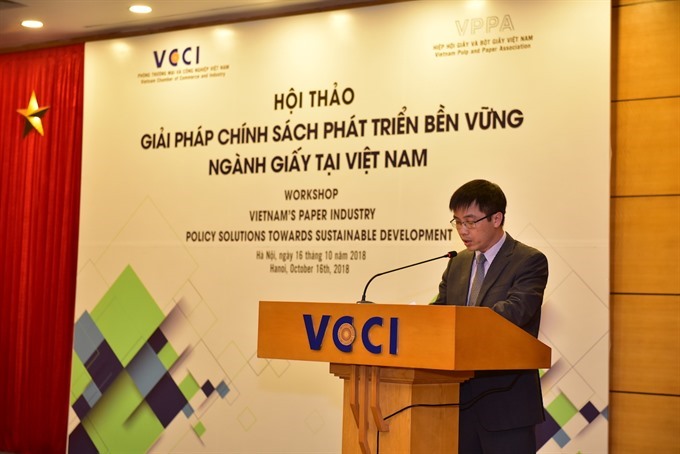Concerns have been raise over the rapid increase in wood chip production and export which, say analysts, could threaten raw material availability for the domestic solid wood processing industry. In response the authorities in Quang Nam Province are seeking the development of technical standards for forest management and harvesting for chip plantations.
In Quang Nam Province there are about 200,000 ha of plantations, mainly acacia. Most of this area is of small scale household plots and harvesting is done when the trees are around 3-4 years old. The harvested timber is chipped and shipped to China from Dung Quat Port.
Currently Quang Nam harvests about 1 million tonnes of acacia annually. There are 16 chip processing plants in the Province but there are fears that the local supply will soon be insufficient and that the chip mills will turn to neighboring provinces such as Da Nang and Quang Ngai.
Analysts point out that local raw material suppliers could be vulnerable should China introduce restrictions on imports.
There are more than 100 major wood processing plants In Binh Dinh and they are exporting to over 80 countries and territories. The wood processing sector contributes a lot to provincial development but companies are finding it a problem to secure raw materials,
Every year local manufacturers import more than 200,000 cu.m of wood raw materials of which sawnwood accounts for around 85% with the balance being logs and composite panels.
According to the Department of Industry and Trade, in the first 9 months of this year, the Province’s wood furniture manufacturing industry index rose by nearly 7% year on year and the index for ‘other’ wood products jumped around 27%. In the same period furniture exports reached over US$340 million, up 20% over the same period last year and accounting for 51% of the total exports of the province.
Mr. Le Minh Thien, Chairman of Binh Dinh Timber and Forest Products Association, said “despite the high export growth rates, the production of export wood processing enterprises in the province faced many difficulties in raw materials supplies. The local producers and exporters had to import more than 80% of raw wood materials with many risks about legality and origins”.
He pointed out that under these circumstances it is very challenging to manage production costs and maintain competitiveness in the global market.
In responding to these comments Ngo Van Tong, Director of Department of Industry and Trade, said there are plans develop large scale timber plantations forests in the province by 2025 to meet 50% of raw wood materials demand for the province’s wood processing industry.
Investments in plantations would continue until they are contributing around 80% of the raw material requirements of factories in the province.






